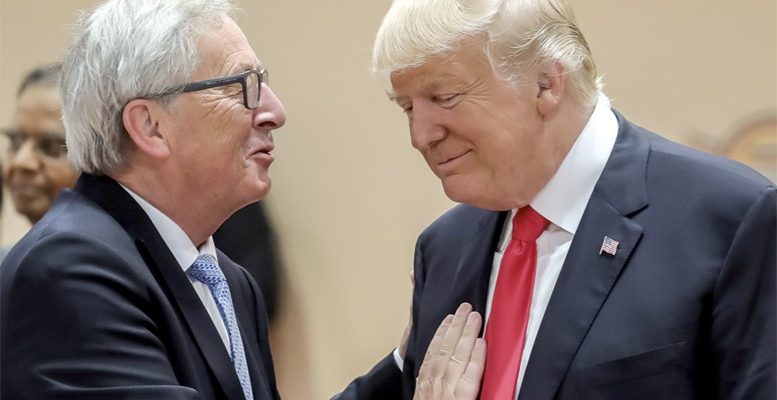President Trump is in trouble. He lost control of the House of Representatives in the mid-term elections. The Democrat majority in the House has defied Trump over his border wall with Mexico (resulting in a 35 day shut down of the Federal Government) and is opening a series of oversight investigations into the President’s dealings with foreign governments. Impeachment remains on the cards. The Mueller enquiry into possible Russian collaboration reports soon. Federal Prosecutors in New York are investigating the funding of Trump’s inauguration ceremony (in may not have been the best attended, as Trump claimed, but it appears to have been by far the most expensive). Trade talks with China appear to be stalling (despite Trump’s positive tweets). North Korea continues to develop its nuclear missile programme. Trump’s attempts to pull troops out of Syria and Afghanistan have cost him a Defence Secretary and are being delayed by the security establishment.
Most US Presidents in this situation would moderate their positions and reach out to potential allies. But Trump is not like most US Presidents. Moreover, he knows that moderating his position will lose his base and consequently the 2020 election (and possibly thereafter spending time in federal gaol, with much of his family). Both his instincts and electoral calculation point in the same direction: double down on his base; provoke a chaos which his narcissism and amorality better position him to navigate than his opponents.
What does doubling down mean? It means declaring a migration emergency so that he can divert funds to build his wall on the Mexican border, regardless of the implications for the US constitution or the separation of powers; confirming the denuclearisation of N Korea at the Hanoi summit with Kim Jong-un and announcing the withdrawal of US troops from the Korean peninsula; precipitate withdrawal of US troops from Syria and Afghanistan, regardless of the political and security consequences; stepping up the trade war with China; imposing tariffs on European car imports into the US (a Commerce Dept report will shortly conclude that car imports impair US national security); and reduce the US commitment to NATO.
Trump may not do all of these things. He has options. He can fudge on the trade war with China, declare victory and leave things as they are (declaring non existent victories is a favourite Trump tactic, and one which does not seem to worry his core voters). But his instincts will be in this direction. Without “adults” in the room (Defence Secretary Mattis, who resigned in December, was widely seen as the last one left), there is no one to contain Trump’s wilder urges. Secretary of State Pompeo and National Security Advisor Bolton will encourage him to confront Iran and support Saudi Arabia, further destabilising the Middle East.
This is all bad news for Europe. Germany’s economy is already teetering on the edge of recession. Tariffs on car exports to the US (not to mention a no deal Brexit) would push it over the edge, dragging the rest of Europe down with it. Not since the end of the Cold War has Europe more needed NATO’s security guarantees. Instability in the Middle East threatens to rekindle the toxic migration issue, which could split the EU apart. Putin and Erdogan, not exactly Europe’s best friends, may hold the future of the EU in their hands. How does Europe respond to the prospect of Trump unchained? The British government and European Commission indulge in brinkmanship which risks a no-deal Brexit, with all the economic dislocation and damage that implies, and the French government recalls its ambassador from Italy for consultations.





